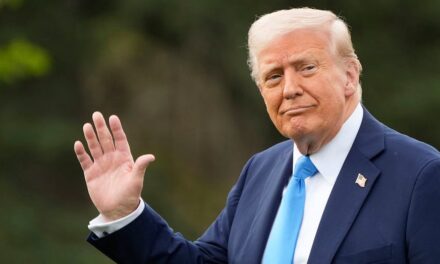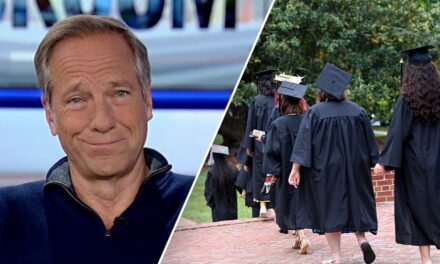In the competitive landscape of American journalism, certain pieces of reporting stand out for their depth, courage, and impact. A recent discussion has emerged surrounding a report published by The Wall Street Journal (WSJ) that examines the decline of President Biden as he approaches the 2024 election. CBS News reporter, recognizing the dedication and boldness embodied in the WSJ’s piece, has proclaimed that the report should have been considered for a Pulitzer Prize.
The conversation regarding the WSJ report has garnered attention not only due to the content but also because of the peculiar nature of political discourse in the current landscape. As President Biden’s second term campaign kicks into gear, questions surrounding his health, cognitive abilities, and stamina are at the forefront of political debate. The WSJ’s investigative piece delves deep into these topics, presenting a detailed examination of Biden’s public appearances, speeches, and overall demeanor.
Critics and supporters alike acknowledge that the report sheds light on various aspects that are typically brushed under the rug in mainstream discussions. It offers a perspective that poses serious questions about the President’s ability to effectively serve another term. CBS News reporter’s endorsement of the article emphasizes the guts required to address such sensitive yet crucial issues in today’s politically polarized environment.
In an era where many media outlets fear backlash or potential repercussions from aligning with either political party, WSJ’s willingness to tackle Biden’s decline head-on is commendable. The CBS reporter pointed out that journalism must sometimes take difficult paths to reveal uncomfortable truths. The ability to question authority and address fragile subjects is what journalism thrives on, after all.
During a recent segment discussing the report, the CBS News reporter highlighted specific segments of the WSJ article that deserve recognition. They noted the meticulous fact-checking, expert opinions, and interviews woven into the fabric of the report, which alive the journalism behind it. This level of thorough investigation is considered by many to be the gold standard for journalism.
The conversation around the WSJ’s report has sparked a broader dialogue concerning the role of media in political scrutiny. Many argue that the media’s responsibility lies in serving as a watchdog, holding leaders accountable. In this light, the WSJ’s report illustrates how the press can function as a critical check on those in power, ensuring that every element of a political candidate’s fitness for office is scrutinized.
Despite the commendations from various sectors of the media, some critics have raised concerns about potential bias in reporting. In the challenging arena of political journalism, the line between objective reporting and editorializing can often become blurred. However, defenders of the WSJ’s piece argue that their findings rely fundamentally on observable truths and various analyses rather than partisan framing.
As the election cycle progresses, the media’s role in shaping public perception is only going to intensify. In this context, journalists and news outlets must navigate a landscape rife with misinformation and politically charged narratives. The WSJ’s report is a testament to the importance of facts and accountability—an urgent need as voters seek clarity about their leaders.
Furthermore, the CBS News reporter’s assertion that the WSJ report should have been looked at for a Pulitzer Prize further emphasizes the significance of recognizing journalistic quality and integrity, regardless of political ramifications. In a time when media credibility is often called into question, exemplary pieces of reporting must be celebrated, as they reinforce the ideals of objective scrutiny and responsible journalism.
In response to such discussions, some critics have responded vigorously, accusing certain news outfits of lacking objectivity or succumbing to sensationalism. Nevertheless, the WSJ report stands as an important contribution to the national dialogue, inciting conversations that challenge voters to reflect on the qualifications of their political candidates critically.
As Americans gear up for the 2024 elections, it is pertinent for voters to remain well-informed about the health and capabilities of candidates. The WSJ’s thorough examination of President Biden’s fitness for office resonates with concerns from both sides of the aisle regarding the increasing polarization in leadership capabilities. Key questions surrounding leadership dynamics, mental acuity, and political responsibility are brought to the forefront, demanding attention from voters across the spectrum.
In reviewing the implications of the WSJ report, one might consider its potential effects on the 2024 campaign landscape. Discussions surrounding Biden’s decline could become a focal point for political opponents who will undoubtedly use this information to shape their platforms. For Biden, acknowledging and addressing these observations could be crucial in bridging the gap between perception and reality, particularly as he positions himself for a robust campaign.
Among Biden’s supporters, there will likely be considerable debate regarding the need to address criticisms without appearing defensive. Engaging with the media through transparency and a willingness to confront concerns can be pivotal in maintaining trust with the electorate. The power of transformative leadership often lies in vulnerability, and a proactive approach may lead to greater public understanding and support.
In the end, the dialogue surrounding the WSJ’s report reinforces the necessity for high-quality journalism that does not shy away from uncomfortable subjects. The CBS reporter’s recognition of the piece as an exemplary form of investigative journalism serves as an important reminder that the duty of the press is to foster deeper understanding and awareness among the public. As the 2024 election approaches, it is evident that the media will play a significant role in shaping narratives and influencing voter perceptions.
Ultimately, for journalists, the call of duty is to shine a light on the truth, a responsibility underscored by the CBS news reporter’s enthusiastic endorsement of the WSJ’s meaningful investigation into the pressing issue of President Biden’s fitness for office. As such, the ongoing conversation marks a positive step toward encouraging more engaged and informed voters as they navigate the complexities of the presidential race ahead.
As this political story unfolds, both the WSJ’s insights and the reactions they inspire will likely continue to shape the national discourse. The pursuit of transparency in government and the nuanced discourse surrounding the competency of leadership has never been more critical. Through this lens, WSJ’s report might not only be worthy of recognition but could also set a precedent for future journalistic endeavors ahead of the pivotal 2024 elections.































